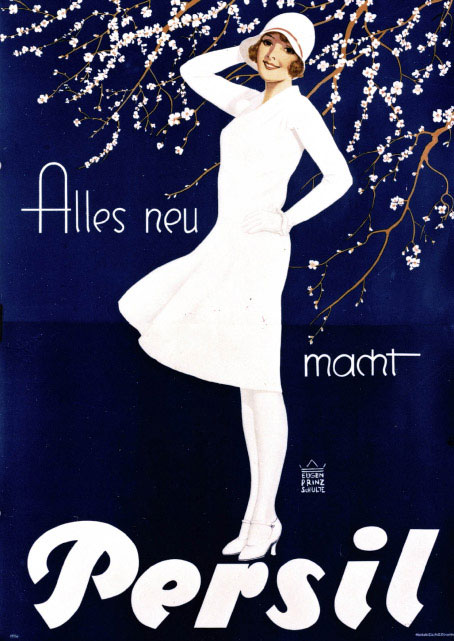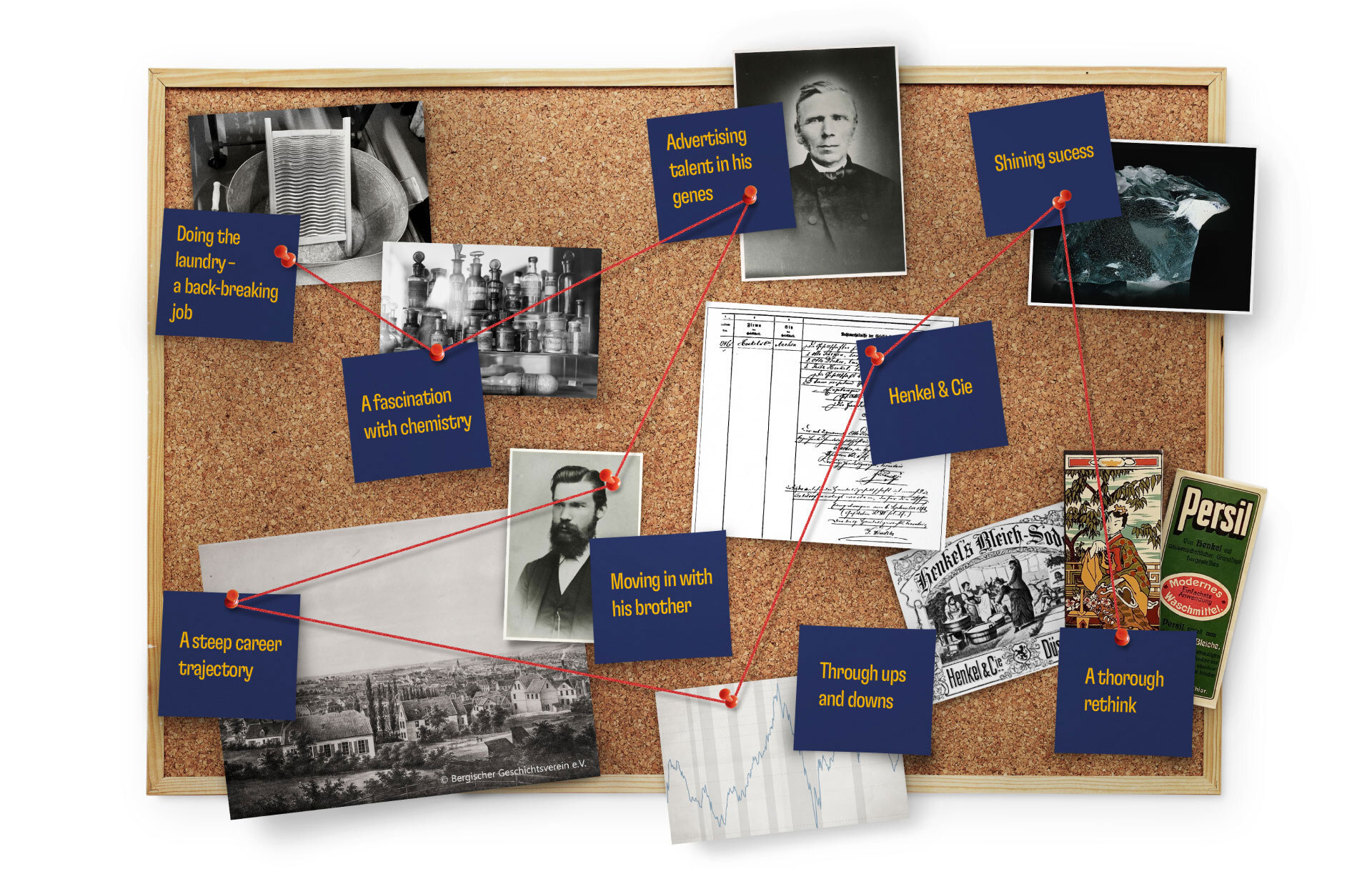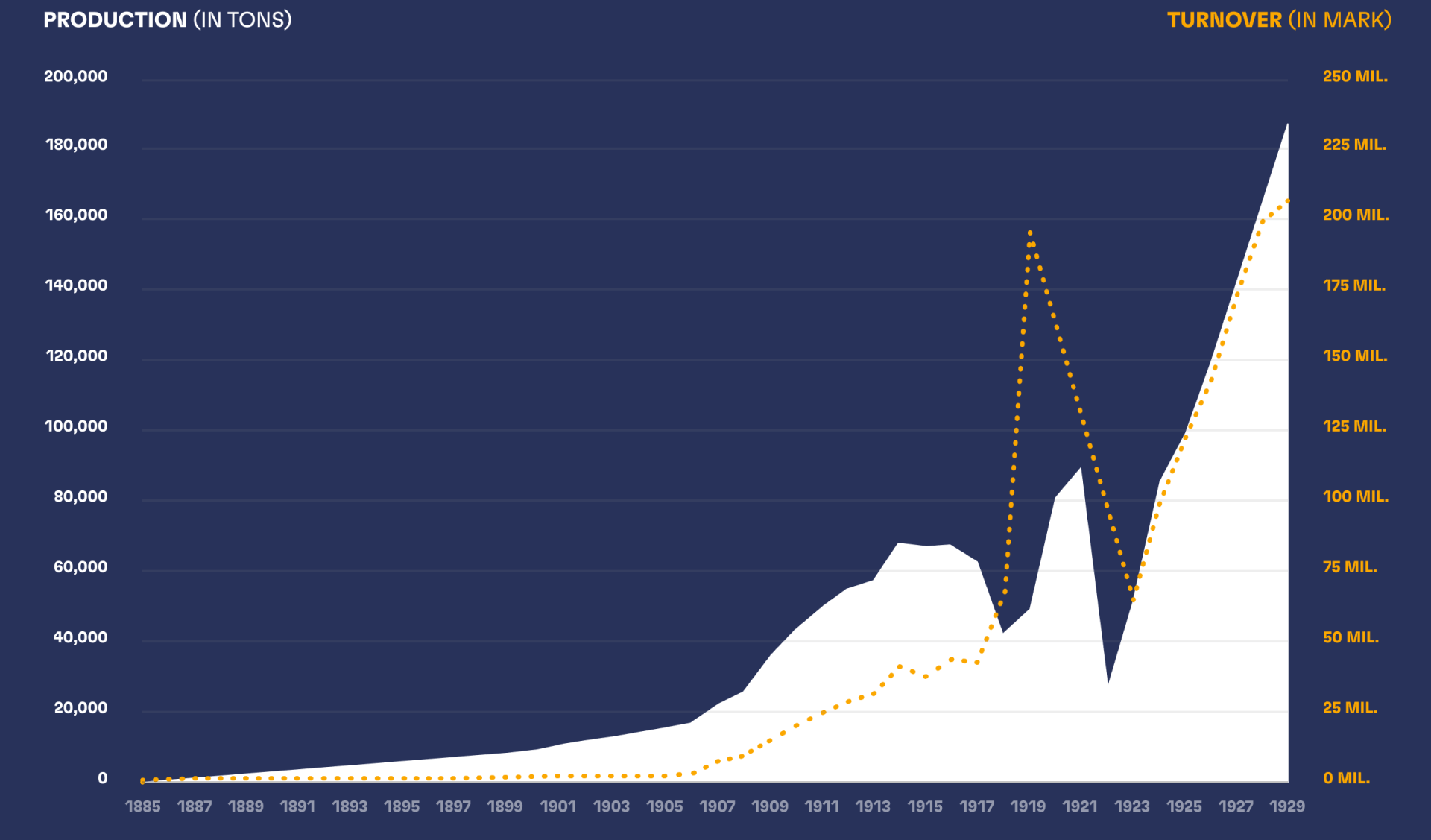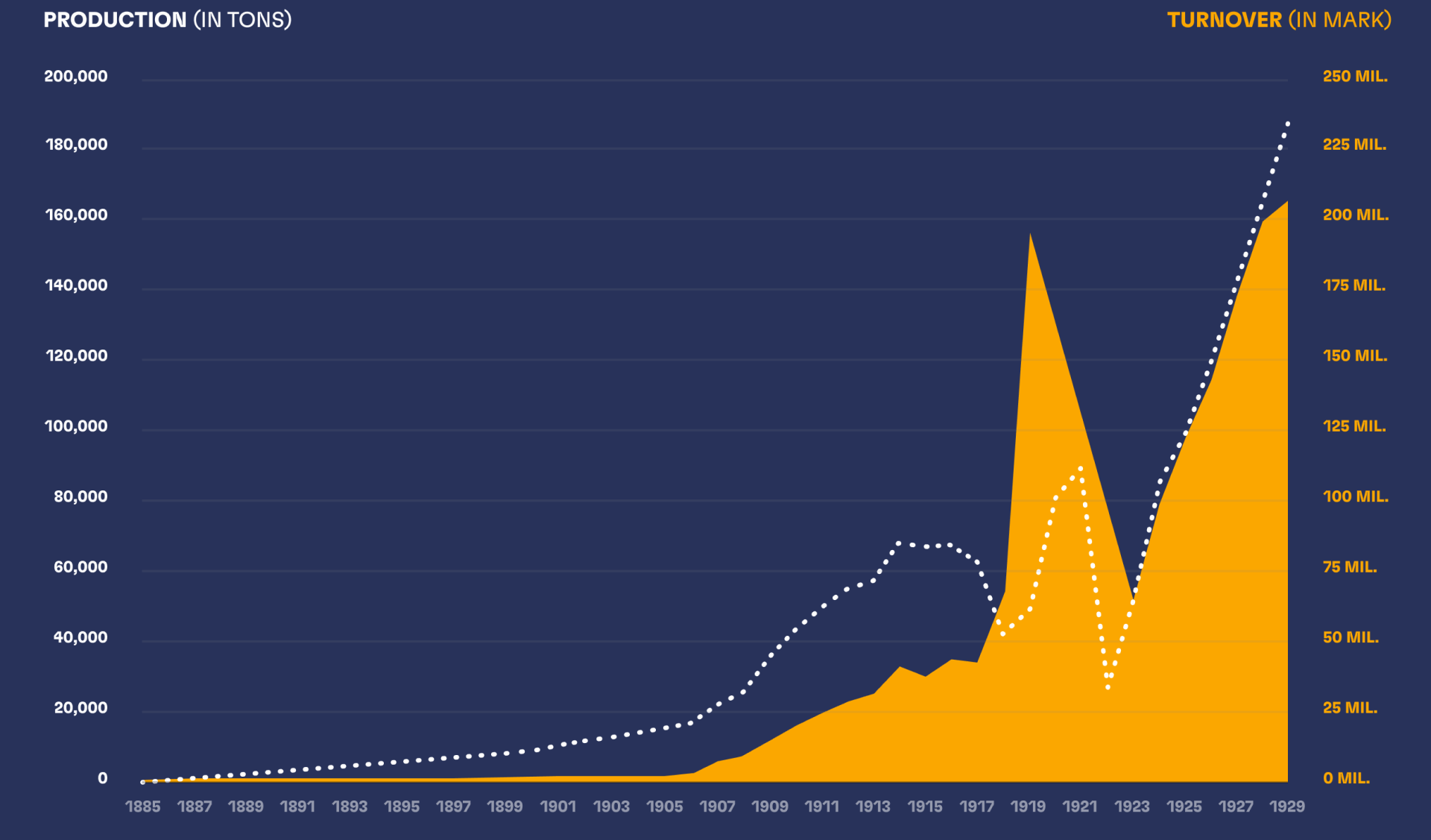The entrepreneur
Foundation – breakthrough – internationalization
The long road to success
When Fritz Henkel was born in 1848, the chemical industry was on the rise. Even as a child, Fritz was fascinated with chemistry, and as a young man his career in the industry quickly took off. The key to his success: He combined commercial talent with entrepreneurial courage, and was never put off by failure.
Check out this section to find out how entrepreneurial vision, strong decision-making skills and an eye for innovation enabled Fritz Henkel to advance his company.
Did Fritz Henkel achieve a breakthrough with his first laundry detergent?
A place to grow
Today, Henkel’s headquarters can be found in Düsseldorf-Holthausen. In its first decades, however, the young company had to move three times, until an ideal site with sufficient growth potential was found.
“Germany is big, but thankfully I had the foresight to choose the Rhineland and, more specifically, [...] Düsseldorf. It was the right move. This area offered not just hundreds but thousands of shining examples from which to learn, to gain inspiration and find guidance on forging a successful future.”
From Fritz Henkel’s gala speech on September 26, 1926.
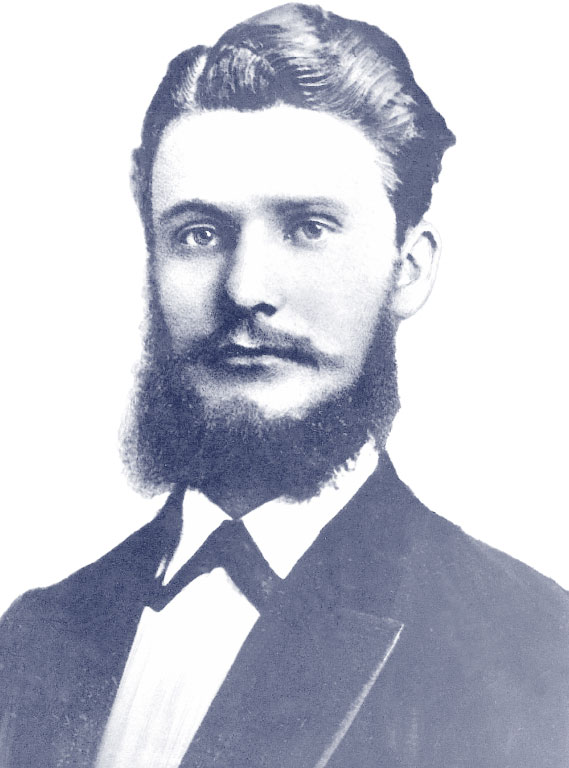
Solid as a rock
Fritz Henkel and his business partners founded the company in tough economic times. Economic growth had declined sharply as a result of the so-called Founders’ Crisis from the mid-1870s onward, and banks were unwilling to grant loans to young companies like theirs. The company survived its first years with difficulty.
Following the lack of success of the Universal-Waschmittel (universal detergent) and the withdrawal of the two partners in 1877 and 1879, Fritz Henkel assumed sole responsibility for his company.
The young company founder refused to be intimidated by these initial setbacks and continued to believe in his vision of an efficient and affordable detergent. In 1878, he launched Henkel’s Bleich-Soda (bleaching soda) – the company’s first market success.
From product to brand
Henkel‘s Bleich-Soda (bleaching soda) was an immediate success in 1878. The novel detergent with its innovative formulation could lighten yellowed laundry without damaging it – unlike in the case of other bleaching detergents.
Another new feature was that the detergent was sold in a uniform packaging size and the brand name was printed prominently on the packaging. Together with the lion motif, this ensured high brand recognition.
Check out the next section to find out more about the brand pioneer Fritz Henkel and his later success, Persil.
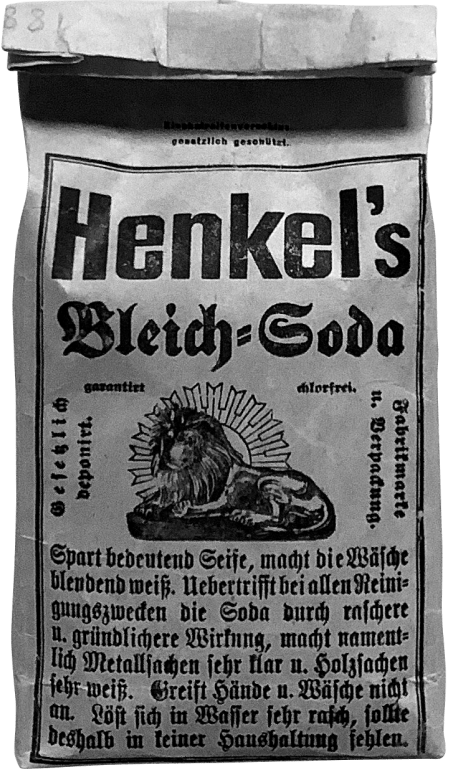
“We do not want to rest so as not to rust, but to do our utmost to continue to expand the company internally and externally.”
Spoken to the employees on September 26, 1916, marking the 40th anniversary of the founding of the company.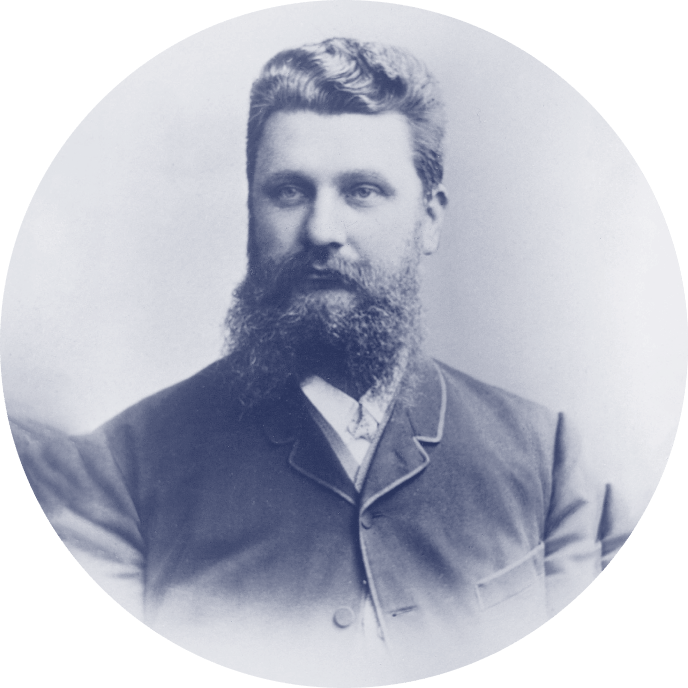
Site development
With the acquisition of the site in Holthausen, Fritz Henkel had found his ideal location. He was convinced that the site met all the requirements for further expanding the company. His visionary plan paid off: The Henkel site has been continuously extended since it was purchased at the start of the 20th century.
Check out this animation to find out how the site grew between 1900 and 1930.
The recipe for success
The company founder’s desk gives you an overview of some of keys to Henkel’s success.
Click on the red buttons to learn more about them.

The company broadens its reach
Even in the first few years after the company’s establishment, there were inquiries from abroad asking for a source of supply of Henkel products. Export activities started in May 1878, when a general retailer from the Swiss town of Bern ordered 200 pounds of Universal-Waschmittel (universal detergent) and 200 packages of Henkel's Bleich-Soda (bleaching soda). The official opening of the first sales office abroad – in Vienna in 1886 – marked the beginning of Henkel’s systematic expansion abroad.
The animation shows the most important milestones in the company’s expansion during Fritz Henkel’s lifetime. For better geographical orientation, the countries are shown within their current borders. But remember! Some countries had different names in the past.
The company grows
Unfortunately, very few company statistics of the early years still exist today. The first sales report that survived covers the year 1884, when the company generated 239,000 marks. The production volume was not systematically tracked before 1900. What is known is that up until the outbreak of World War I, production and sales volumes rose steadily. During the war, there was an initial slump due to the general economic situation and the shortage of raw materials – it was not until 1920 that it got back close to pre-war production levels. The second turning point followed after the end of the war: The devaluation of the mark was in full swing and escalated to hyperinflation in 1923. For this reason, no reliable figures are available for these years.
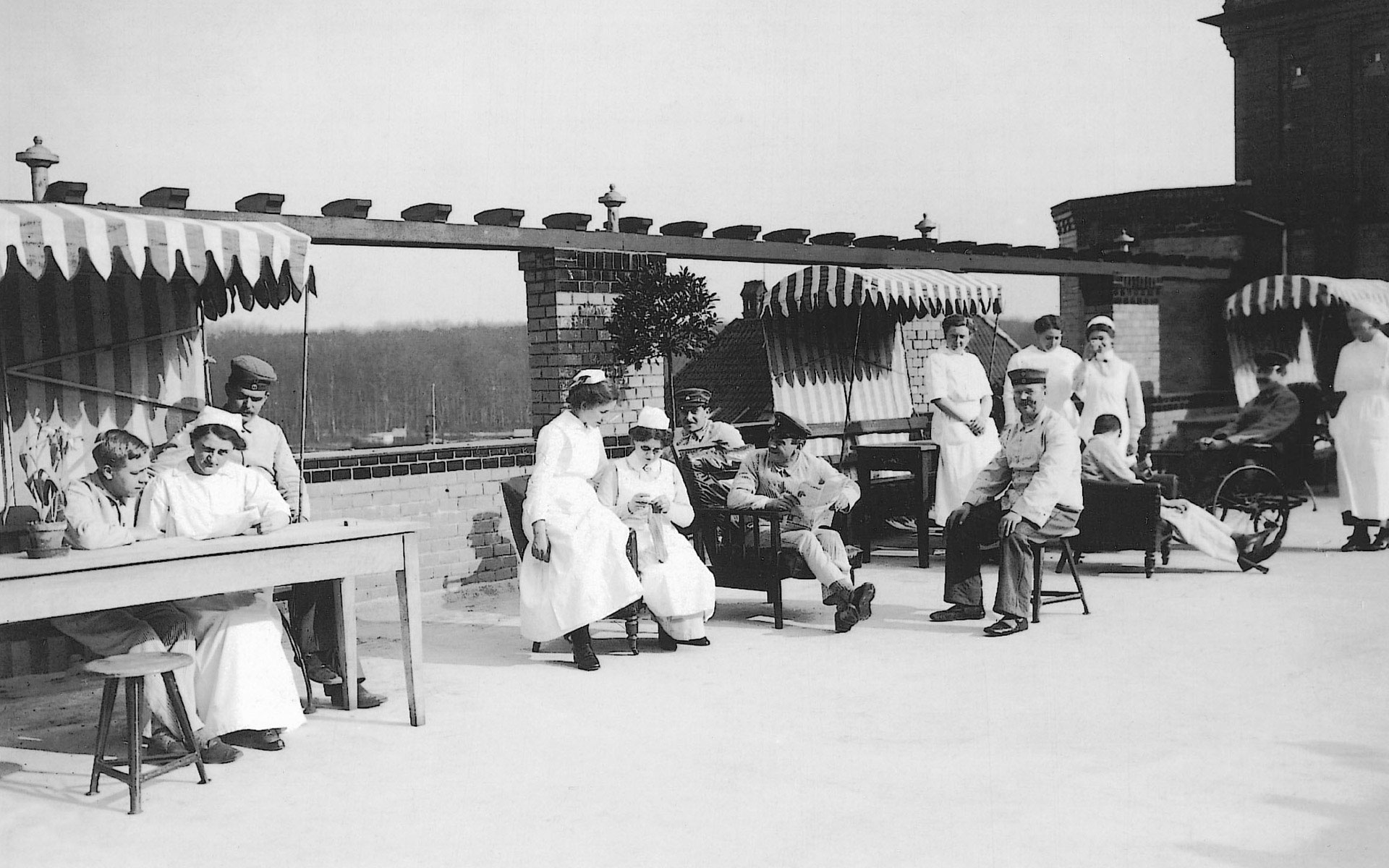
With Henkel through the biggest crisis
The wellbeing of his employees was always important to Fritz Henkel. It is therefore not surprising that right at the outbreak of war, he made the promise that the jobs of drafted soldiers would remain open until they returned. As of 1917, Henkel provided financial support to the families of drafted soldiers.
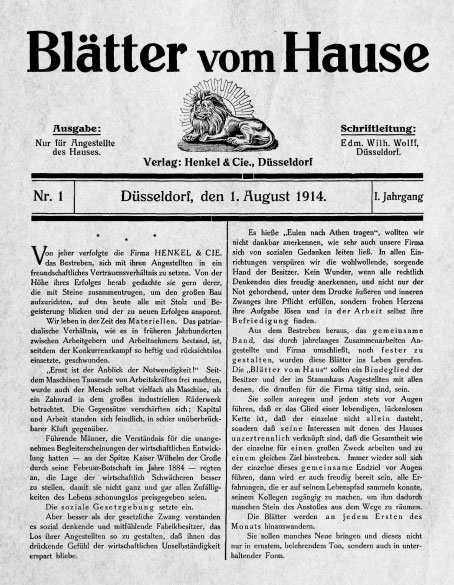
“Blätter vom Hause”
The employee magazine “Blätter vom Hause” was first published in 1914 shortly before the outbreak of the First World War. During the war, it was mainly used to keep in touch with Henkel employees who had been called up.
You can find out more about Henkel’s in-house magazine in the section “Fritz Henkel and his employees.”
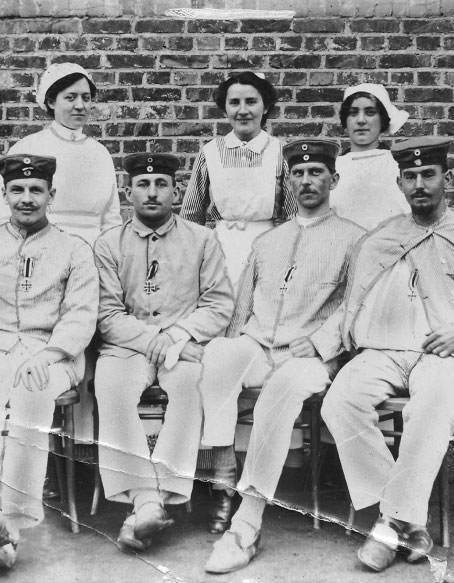
Henkel’s war hospital
From August 1914, Henkel provided the military administration with a war hospital for wounded soldiers. The costs of building and maintaining it were borne by the company. The first wounded arrived in Holthausen in the same month. The hospital was run by Emmy Lüps and her sisters-in-law Änny and Gerda Henkel. A total of 1,350 soldiers were treated here between 1914 and 1918.
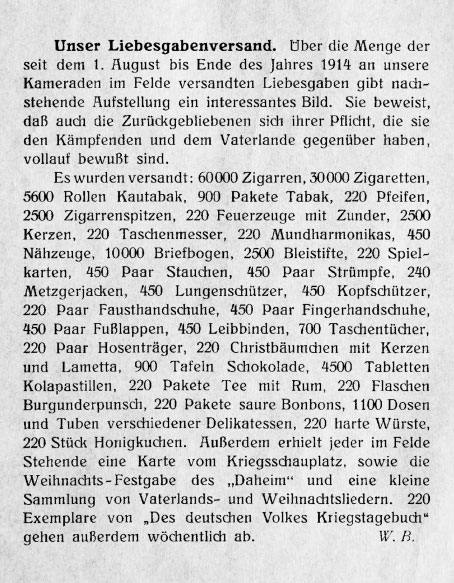
Gifts of love
Henkel sent so-called “gifts of love” to its drafted employees at the front. The parcels contained coveted items such as tobacco, everyday necessities, and food, but also Persil, mouth organs, items of clothing, alcoholic beverages, and the company magazine “Blätter vom Hause.”
Hyperinflation
As of 1914, the German government fired up the money-printing presses, first to finance the war effort, later to raise money for the reparation payments imposed in the Peace Treaty of Versailles. (The reparations were compensation payments to the victorious allies.) As the money supply soared, the value of the mark dropped, with massive devaluation eventually leading to hyperinflation in 1923.
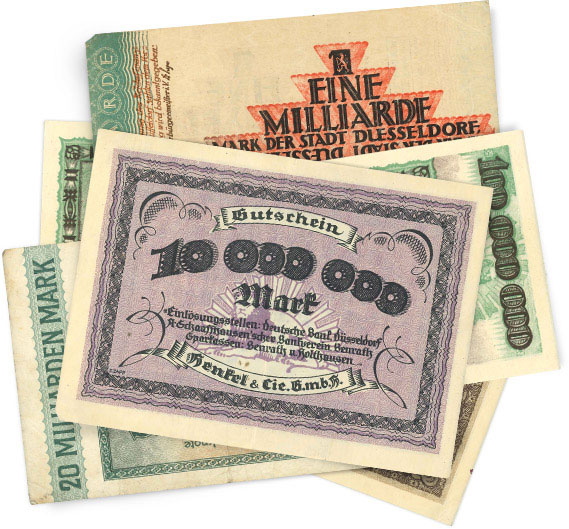
How much did a 250-gram package of Persil cost at the height of hyperinflation?
Move the slider to the position you think is correct and confirm the entry with OK.The brand pioneer
In the next section, you will learn how the success of Persil paved the way to Henkel’s globalization.
